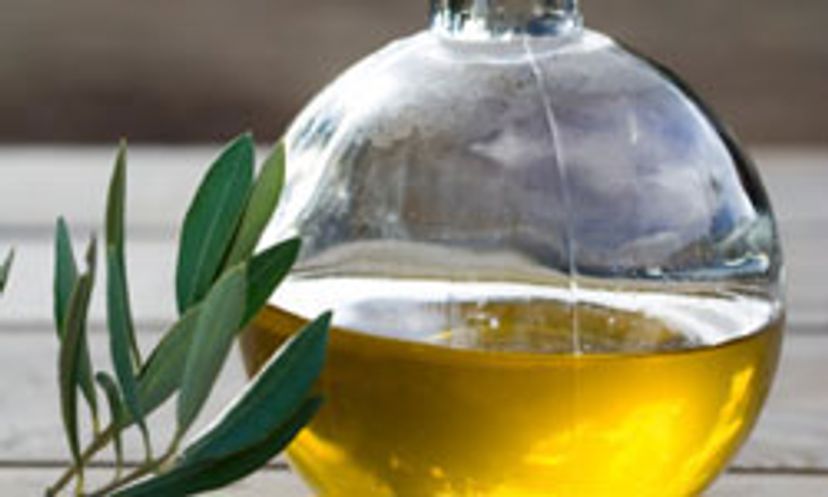
About This Quiz
Continue learning about the vast array of foods that help lower cholesterol. Take this quiz to find out how olive oil, plant sterols, psyllium and whole grains lower cholesterol and contribute to better health. Discover some more controversial supplements that claim to lower cholesterol, such as flaxseed, guggul, lecithin and policosanol.Monosaturated fat is found in olive oil, which residents of the Mediterranean region consume in much larger quantities. Monosaturated fat decreases cholesterol levels.
The American Food and Drug Administration recommends consuming two tablespoons of olive oil per day to reduce your risk of heart disease.
Typically, individuals who consume olive oil on a regular basis have less saturated fat in their diet. Moreover, olive oil does not raise triglyceride levels or decrease good (HDL) cholesterol levels.
Advertisement
Keep in mind, even though olive oil has health benefits, it can still contribute to weight gain and poor weight management.
Plant sterols and plant stanols are found in a variety of foods, including: fruits, vegetables, vegetable oils, margarine, salad dressings, snack bars and orange juice.
Plant sterols and stanols, in relatively small quantities, can lower bad (LDL) cholesterol. Plant sterols and stanols have no effect on good (HDL) cholesterol levels.
Advertisement
Consuming two to three grams of sterols and stanols per day can reduce cholesterol levels by 6 to 15 percent. Consuming more than two to three grams per day, however, will not lower your cholesterol levels any further.
Psyllium is a natural soluble fiber that comes from the husks of psyllium seeds.
Psyllium is typically found in some ready-to-eat cereals and in laxatives such as Metamucil. In the past, psyllium was predominantly used to treat constipation.
Advertisement
You can decrease your LDL cholesterol by nine percent by eating enriched cereals that contain 10 to 12 grams of psyllium in one serving.
Whole grains include: whole oats, whole wheat, whole rye, whole grain-barley, brown rice and popcorn.
Whole grains protect against a whole host of ailments, including: heart disease, diabetes, cancer and obesity.
Advertisement
Flaxseed contains soluble fiber and alpha-linolenic acid (ALA), which is an omega-3 fatty acid. In fact, ALA is an essential fatty acid, as our body does not produce it naturally.
Walnuts, canola oil, soybean oil and leafy greens, in addition to flaxseed, are rich in alpha-linolenic acid.
Some research claims that you can lower your risk of heart disease by 45 percent if you take the recommended daily amount of flaxseed, although the verdict is still out. It is unclear at this point whether flaxseed actually lowers cholesterol levels.
Advertisement
Guggul, a tree extract native to India, was once believed to lower LDL cholesterol. More recent research, however, supports the finding that guggul actually raises LDL cholesterol levels.
Lecithin is essential for healthy bodily functions. Lecithin helps in the transportation of nerve impulse in the body, and with the transportation of triglycerides and cholesterol in the bloodstream.
Lethicin helps improve memory and helps with a variety of illnesses, including arthritis and skin disorders. Lecithin was once believed to help reduce cholesterol levels, but more recent research has suggested otherwise.
Advertisement
Policosanol is derived from sugar cane. It is also found in beeswax, wheat germ and rice bran.
Daily intake of policosanol is not recommended, although some research does suggest that 5 to 40 milligrams of policosanol per day can reduce your LDL cholesterol up to 30 percent.